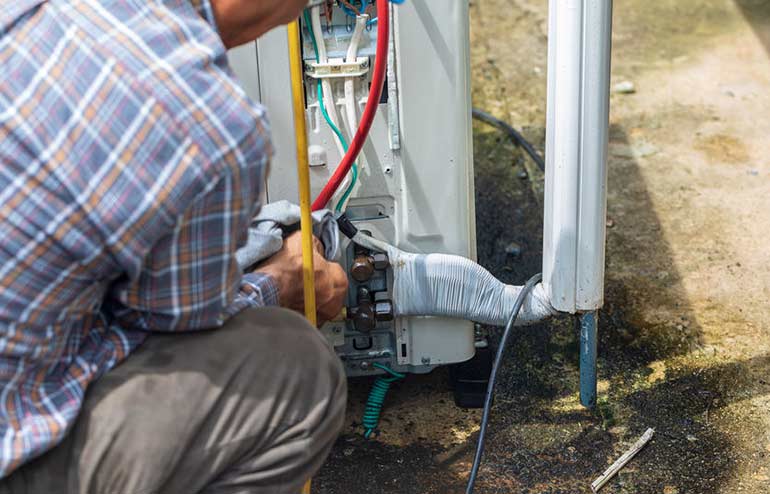Australian engineer fined for venting refrigerant
28th August 2019
AUSTRALIA: A New South Wales-based refrigeration engineer has been fined AUS$2,520 (€1,530) for venting R410A, while installing an air conditioning system.
In other cases, two companies have been fined for importing HFC refrigerant-containing equipment into Australia without an appropriate licence.
All three cases breached Australia’s Ozone Protection and Synthetic Greenhouse Gas Management Act 1989, which controls the manufacture, import, export and use of a range of synthetic greenhouse gases and ozone depleting substances. Under the regulations persons and companies who acquire, possess, dispose of or handle these substances in the refrigeration and air conditioning sector are required to hold an appropriate permit.
The unnamed engineer was said to hold a refrigeration and air conditioning permit issued by the Australian Refrigeration Council (ARC) under the regulations to the Act and was aware of his obligations when the discharge occurred.
Monica Collins, head of the office of compliance at Australia’s Department of the Environment and Energy said, “The Department and ARC work together to promote voluntary compliance with the Act and its regulations. The ARC engages widely with businesses and technicians to help them to understand and comply with their obligations. This includes the obligation not to discharge scheduled substances.”
Australia’s Department of the Environment and Energy also fined a New South Wales-based company AUS$12,600 (€7,660) for importing a bus with an air conditioning system containing R134a, while a Victorian-based company was fined the same amount for importing a pool heat pump containing R410A. Neither had the necessary licence.
The companies have not been named but the NSW company was described as “a major automotive retailer” and was said to be aware of its obligations under the Act at the time it imported the bus. The heat pump importer was unaware of its legal obligations.
“Reducing emissions of synthetic greenhouse gases and ozone depleting substances is a priority area for the Department,” said Collins.
“We work with the Australian Border Force to monitor and inspect imported and exported goods to ensure compliance with the Act and where appropriate undertake enforcement activities.
“Importers and customs brokers should check import requirements for synthetic greenhouse gases or ozone depleting substances, including when they are contained in equipment, before importing or exporting goods.”







